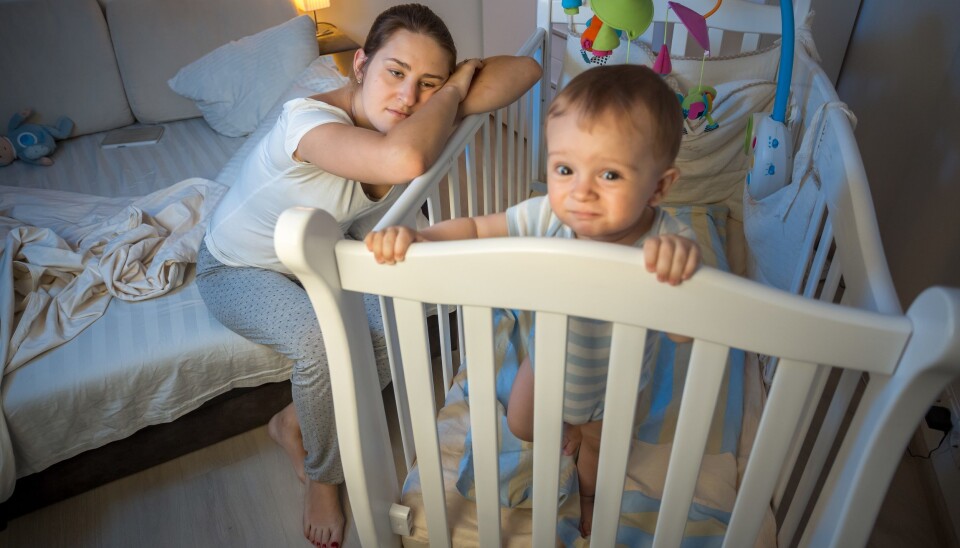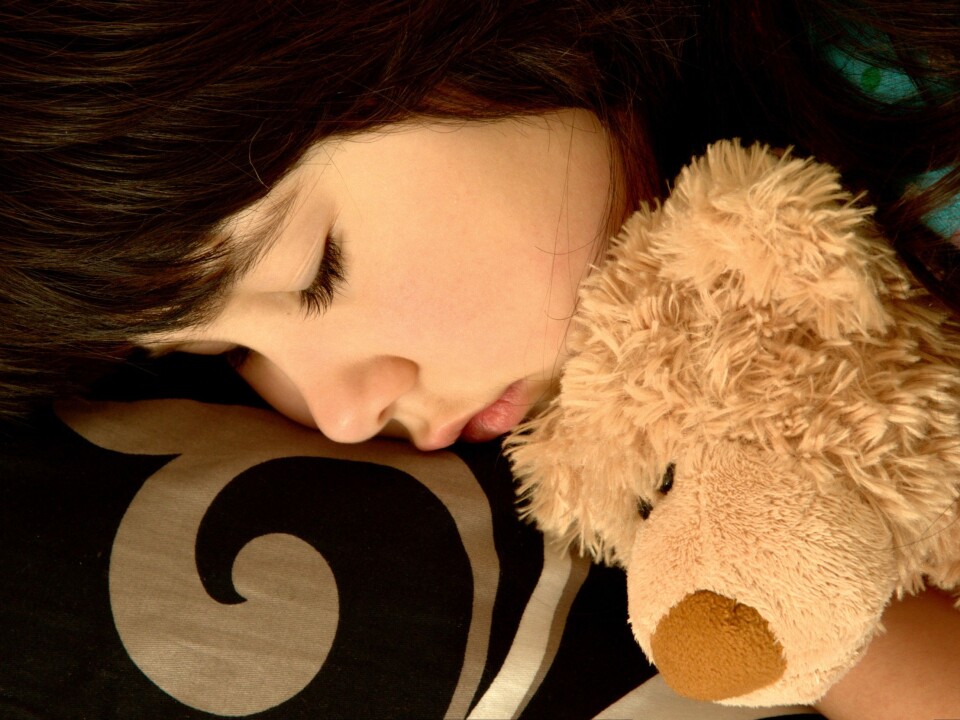
Is being overtired an actual physical condition?
Or is it just something we say when our kids won’t sleep?
Sleep: toddlers need lots of it, and parents need at least some.
But if a toddler hasn’t had enough sleep during the day, they can turn into little monsters at bedtime, unable to nod off. There’s a word that’s often used to describe this situation: overtired.
Is being overtired just a concept dreamed up by exhausted parents or something that has actual, physical significance?
Or is it that we simply expect toddlers who haven’t napped well during the day to be overtired — much like the expectation that children who eat sugar will become hyperactive, even though the science shows that sugar doesn’t make them hyperactive at all.

Ståle Pallesen, a sleep scientist at the University of Bergen, says weary parents are not simply hallucinating from their exhaustion: being overtired is, in fact, a real condition.
Toddlers react differently
“When infants don’t get enough sleep, they don't react like adults,” Pallesen said.
He says that tired adults tend to be withdrawn and passive. But children, especially in the first two years of life, can react in the opposite way.
This is what Pallesen calls a paradoxical sleep reaction. Instead of getting more tired, kids can become wound up. This can also happen in toddlers older than two.
“They can become more agitated and uneasy when they haven’t gotten the naps they need during the day. Before a child turns three, they usually need one to three naps during the day,” he said.
If toddlers don’t nap, then they have a much harder time falling asleep, he says.
Small, developing brains
Sleep researchers don’t exactly know why children get overtired and react the way they do, Pallesen says.
But he thinks it may be related to the fact that their brains are still developing.
“Children are not able to filter out impressions or regulate emotions properly. They may be overwhelmed by too much stimuli, and their brains aren’t not rested enough to cope with it all,” he said.
As a result, the body may react in a way that’s opposite to what the child really needs. Pallesen believes it could be theoretically possible to measure the level of exhaustion in an overtired child.
“It’s possible you could see increases in cortisol levels,” a stress hormone, he says.
“You could also look at brain activity, and perhaps find brain waves that show the child is sleepy and activated at the same time,” he said.
Brain waves are rhythmic patterns that reflect the firing of nerve cells in the brain. Different phases of sleep are characterized by different brain wave patterns that are also distinct from our brain waves when we are awake.
Pallesen says there’s enough evidence to recognize the concept of being overtired as an actual condition in young children.
But what about adults?
Overstimulated by modern society?
More and more sleep researchers are advocating that overtiredness be recognized as a real condition in adults, too.
For example, sleep psychologist Nerina Ramlakhan says that modern society’s electronic distractions mean that we are “always on", and become too wound up to sleep at night when we are actually tired and should sleep. This is a condition she describes as being overtired, according to an article in The Guardian.
“We are, after all, mere toddlers in the digital world; like little kids who don’t know when they have had enough chocolate,” The Guardian article concludes. “We haven’t learned as a society when to say no to being ‘always on’ – and overtiredness is one of the many consequences.”
Pallesen isn’t so sure.
“I see that the term is used to describe different situations, and it is more ambiguous when it comes to adults,” he said.
“Some people use the term when they are sleep deprived, but can’t fall asleep for one reason or another, as when you are worked up by something at nighttime,” he said.
Pallesen says the term is also used to describe when your need for sleep and your natural circadian rhythms are out of synch.
“If, for example, you are awake all night and into the morning, then it’s tough to fall asleep,” he said. “You really need to sleep, but your body’s circadian rhythm tells your body you should be awake. Your body is activated, and your cortisol levels and body temperature rise.”
This is what some people call being overtired — when your body is being sent two different signals.
Pallesen also described a hypothesis called the sleep train. The idea here is that a person’s level of sleepiness goes up and down during the course of an evening and that you should "jump on the sleep train" when you are in one of the sleepy phases.
But he also explained that there isn’t much scientific evidence for this idea.
“If a ‘sleep train’ does have an influence on our ability to sleep, then it is very weak,” he said.
---------------------------------------































